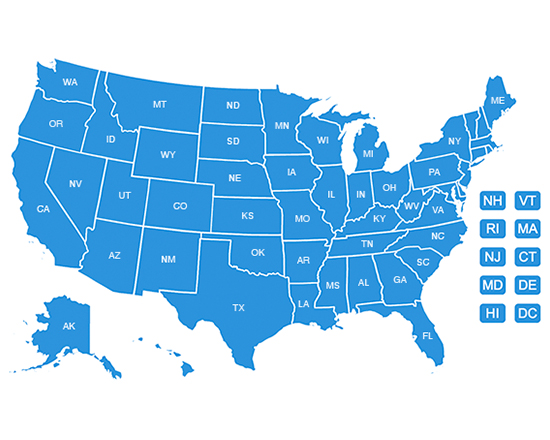The Nursing Home Law Center is committed to providing the legal resources necessary to hold negligent facilities accountable.
Nursing Home Sepsis Lawyer
Compensation for Victims of Sepsis Due to Nursing Home Neglect
At the Nursing Home Law Center, we have extensive experience handling sepsis lawsuits, ensuring that liable parties are held accountable. Our nursing home sepsis lawyer team fights for neglect victims and their families, helping them secure fair settlements for medical expenses, pain and suffering, and wrongful death claims.
Some of our example settlements include:
- $2,150,000 after a resident suffered from severe sepsis due to facility-acquired bedsores and infection, resulting in death.
- $735,000 for compression fractures from a wheelchair fall.
- $395,000 after a resident developed severe bedsores due to nursing home neglect, which led to sepsis and death within 30 days of the wound’s formation.
If your elderly loved one suffered from nursing home sepsis, you may be entitled to compensation. Our experienced nursing home abuse attorneys can help you file a sepsis claim and pursue a fair settlement for your losses. Contact us today for a free consultation to discuss your case.

What Is Sepsis?
Sepsis is a life-threatening condition that occurs when the body’s immune system has an extreme response to an infection, triggering widespread inflammation that can lead to organ failure, septic shock, and even death. As it can quickly result in death, it is considered a medical emergency requiring early treatment to prevent severe complications.

Risk Factors Among Elderly Residents
Elderly residents in nursing homes are particularly vulnerable to serious infections that can lead to sepsis. Several factors increase their risk, making infection prevention and early medical attention crucial.
- Chronic Health Conditions – Many nursing home residents suffer from heart disease, diabetes, chronic obstructive pulmonary disease (COPD), or other conditions.
- Weakened Immune System – Aging naturally weakens the immune system, making it more difficult to fight infections.
- Bedsores and Wound Infections – Without proper wound care, these sores can become infected, leading to severe cases of sepsis.
- Malnutrition – Without proper nutrition, the body’s ability to fight infections declines.
- Difficulty Communicating Symptoms – Many elderly residents have trouble expressing pain, discomfort, or early symptoms of an infection due to cognitive decline, speech impairments, or fear of being a burden.
- Improper Wound Care – Any cuts, scrapes, or surgical wounds must be properly cleaned and monitored.
- Medical Equipment Contamination – Improperly sanitized medical equipment, such as IV lines, feeding tubes, and catheters, can introduce bacteria directly into a resident’s system.
- Inadequate Staffing & Neglect – When nursing home staff are overworked, undertrained, or fail to follow safety protocols, infections may go unnoticed or untreated.

Common Causes of Sepsis in Nursing Homes
While some nursing home residents are naturally at higher risk of developing infections due to chronic health conditions and weakened immune systems, negligence is often a direct cause of sepsis in nursing homes. The most common facility-related causes of nursing home sepsis include:
- Untreated or improperly treated infections
- Poor hygiene and infection control violations
- Medication errors and medical neglect
- Understaffing and lack of proper care
Common Infections Causing Sepsis in Elderly Nursing Home Residents
While not an infection itself, sepsis occurs when the body has an extreme response to an infection. The most common infections that lead to sepsis in nursing homes include:
- Urinary tract infections (UTIs)
- Respiratory infections (such as pneumonia and influenza)
- Skin infections and bedsores
- Gastrointestinal infections, such as C. difficile
- Bloodstream infections (septicemia)

Sepsis as a Sign of Nursing Home Negligence
Sepsis is often a sign of nursing home negligence, as it typically results from untreated infections, poor hygiene practices, and failure to provide proper care. Nursing homes have a legal duty to maintain a safe and sanitary environment, monitor residents for early signs of infection, and ensure timely treatment.
Per 42 CFR § 483.80, nursing homes must have an infection prevention and control program (IPCP) to minimize the risk of serious infections like sepsis. According to 42 CFR § 483.25, facilities must ensure each resident receives proper medical care, including wound treatment, medication management, and monitoring for health issues.
Signs and Symptoms of Sepsis on Nursing Home Residents
The main thing to be concerned about with sepsis in nursing home residents is being able to spot the signs and symptoms of it. Early detection is critical to treating the patient and preventing the infection from progressing to serious levels. The early signs of sepsis include:
- Chills or shivering
- Fever or low body temperature
- Confusion or disorientation
- Rapid heart rate (tachycardia)
- Rapid breathing (tachypnea)
- Clammy or sweaty skin
- Rash
Worsening symptoms of sepsis or that someone is going into shock are:
- Abdominal pain
- Extreme confusion and disorientation
- Difficulty breathing
- Dizziness
- Nausea and vomiting
- Significantly decreased urine output
- Low blood pressure (hypotension)
- Organ failure
Stages of Sepsis
Sepsis can develop through 3 stages:
- Systemic Inflammatory Response Syndrome (SIRS) – The body responds to an infection with widespread inflammation, marked by fever, increased heart rate, rapid breathing, or abnormal white blood cell count.
- Severe Sepsis – The infection worsens, leading to significant organ dysfunction, such as kidney failure, abnormal heart function, or dangerously low blood oxygen levels.
- Septic Shock – The final stage where blood pressure drops to dangerously low levels despite fluid resuscitation, leading to multiple organ failure and a high risk of death.
Diagnosing and Treating Sepsis
Sepsis is diagnosed through blood tests, imaging scans, and monitoring vital signs. Early medical treatment includes IV antibiotics, fluids, oxygen therapy, and, in severe cases, organ support. Prompt medical care is critical to prevent septic shock and serious complications.

Preventing Sepsis in Nursing Home Facilities
Nursing homes can reduce sepsis risks by ensuring the following key measures:
- Proper wound care to prevent infections.
- Maintain hygiene for staff and elderly patients.
- Early detection of infections with prompt treatment.
- Sterile catheter and IV use to prevent bloodstream infections.
- Vaccinations for flu and pneumonia.
- Adequate staffing to ensure proper resident care.
Strict infection control and quick medical response are critical in preventing sepsis-related deaths.
The Statistics of Sepsis in Nursing Homes
- Nursing home residents are seven times more likely to have a severe sepsis diagnosis compared to non-nursing home residents.
- Compared to the elderly living outside of a nursing home, nursing home residents with severe sepsis had significantly higher rates of ICU admission (40% vs. 21%) and in-hospital mortality (37% vs. 15%).
- Sepsis-related hospitalizations in the U.S. cost an estimated $62 billion annually, making it one of the most expensive conditions to treat.
- For every hour sepsis treatment is delayed, mortality risk increases by 7.6%.
Why You Need a Nursing Home Sepsis Attorney
If you or a loved one has suffered from sepsis due to the negligence of a nursing home, you need an experienced attorney to help protect your legal rights and hold those accountable. Below is how the team at the Nursing Home Law Center can help.
Investigating Your Claim
An experienced attorney will conduct a thorough investigation by:
- Interviewing witnesses to nursing home negligence.
- Reviewing medical records for signs of improper wound care or delayed medical treatment.
- Gathering evidence of nursing home abuse or malpractice.
- Consulting medical experts to assess whether reasonable care was provided.
Maximizing Compensation
Sepsis can lead to organ failure, long-term health issues, or wrongful death. A nursing home lawyer will help you recover compensation by:
- Assessing pain and suffering and reduced quality of life.
- Calculating medical bills related to sepsis in nursing homes.
- Pursuing damages for wrongful death if a family member passed away.
Negotiating a Fair Settlement
Most sepsis cases settle outside of court. Your legal team will:
- Present strong evidence to maximize compensation.
- Counter lowball settlement offers from the nursing home’s insurance.
- Ensure you receive a fair settlement for all damages.
Representing You in Court
If a settlement isn’t reached, your sepsis attorney will:
- Present your case to a judge and jury.
- File all necessary legal action and court documents.
- Cross-examine witnesses and challenge the nursing facility’s defense.
Damages Awarded in Nursing Home Sepsis Lawsuits
Once you file a sepsis claim, you’ll start building a case to seek compensation for what happened. Your attorney will review the case and evidence and then present what your recoverable damages might be. Examples of recoverable damages in these types of cases include:
- Punitive damages
- Non-econoimc damages like pain and suffering and loss of enjoyment of life
- Current and future medical bills
- Wrongful death (if the resident passed away from the sepsis)
- Disability
What is the Average Payout for Developing Sepsis in a Nursing Home?
Based on Law.com’s VerdictSearch, payouts in nursing home sepsis lawsuits range from $20,000 to $33,900,700. The average payout is $4,906,279, while the median recovery is $875,000.
Several factors can influence the value of a claim, including:
- Severity of the infection and whether it led to amputation, permanent disability, or death
- How quickly did nursing home staff recognize and respond to the early warning signs of sepsis
- Whether the infection stemmed from preventable causes, such as untreated pressure ulcers, catheter use, or urinary tract infections
- Adequacy of medical records and documentation of wound care or infection monitoring
- The resident’s overall health, life expectancy, and preexisting conditions
- Testimony from medical experts linking staff negligence to the sepsis outcome
- Evidence of chronic understaffing or the nursing home failing to follow infection control protocols
- The facility’s history of prior violations
Example Cases
$17,675,000 Verdict – Delayed Response and Neglect Result in Fatal Sepsis
Janene Roberson, in her 50s with multiple sclerosis, showed stroke-like symptoms but was not transferred to a hospital for more than 13 hours. That night, she was admitted with severe sepsis from a kidney infection and died days later.
Her estate alleged that poor communication, lack of family notification, and failure to follow up led to her preventable death. The jury found the nursing home and nurse practitioner negligent and liable for 72 violations of resident rights, awarding $17,675,000 in damages.
$6,000,000 Verdict – Untreated Bedsores and Infections Cause Death in Nursing Home Patient
Joseph Blango, in his 70s, developed sepsis and a severe, untreated bedsore while under care, later complicated by MRSA and E. Coli infections. His estate claimed that neglect, malnutrition, and falsified records at two facilities caused his decline and eventual death.
The defense argued his infections were unrelated to his bed sore. The jury found both facilities liable, awarding $500,000 in survival damages, $500,000 in consortium damages, and $5 million in punitive damages against the defendants for reckless conduct.
You Have Limited Time to Take Legal Action
Each state has a statute of limitations that determines how long you have to file a nursing home sepsis lawsuit. If you wait too long, you may lose the right to seek compensation, so consulting a specialized personal injury attorney as soon as possible is crucial.
How to Strengthen a Sepsis Lawsuit
If you suspect nursing facility negligence caused your loved one’s sepsis, take these steps:
- Seek medical attention to prevent complications
- Notify the proper authorities and document your report
- Gather medical records, photos, and witness statements
- Record symptoms, treatments, and any communication
- Consult an experienced nursing home neglect attorney

FAQs
Can bedsores cause sepsis?
Yes, untreated bedsores can become infected, leading to sepsis if the infection spreads into the bloodstream.
Can dehydration cause sepsis?
Indirectly, severe dehydration weakens the body’s ability to fight infections, increasing the risk of sepsis.
Is sepsis contagious?
No, sepsis itself is not contagious, but the underlying infection causing it may be.
How long can you live with untreated sepsis?
Failing to properly treat sepsis can rapidly progress to septic shock and organ failure, leading to death within hours or days.
Is sepsis curable in the elderly?
Yes, early treatment with antibiotics and fluids can cure sepsis in the elderly, but recovery depends on overall health and immune function.
Is sepsis fatal in the elderly?
Sepsis can be fatal, especially in elderly patients with weakened immune systems or underlying medical conditions.
How long does it take to die from sepsis?
Without treatment, sepsis can cause organ failure and death within hours to days.
Can you sue a nursing home for sepsis?
Yes, if negligence led to sepsis, you may file a lawsuit to seek compensation.
Who can sue a nursing home for sepsis?
The septic resident, a family member, or an appointed legal representative may file a lawsuit against the nursing facility.
Who can be held liable for sepsis in a nursing home?
Nursing homes, staff members, administrators, and healthcare providers may be held liable if negligence contributed to the nursing home resident developing sepsis.
What is the average nursing home sepsis settlement?
Sepsis settlements vary, but they often range from hundreds of thousands to several million dollars, depending on the severity of harm, medical costs, and negligence involved.

Book a Free Consultation With Our Nursing Home Abuse Lawyers!
At the Nursing Home Law Center, we understand the intricacies of handling nursing home abuse and neglect cases. Our legal team has the experience to handle your sepsis claim with the compassion and attention to detail it deserves.
We pride ourselves on holding the care facility and any other liable parties responsible for their actions, getting you the maximum compensation possible, and guiding you through the process every step of the way.
If you believe you or your loved one got sepsis due to negligence by the nursing home, contact the Nursing Home Law Center at (800) 926-7565 to explore your legal options during a free consultation.


